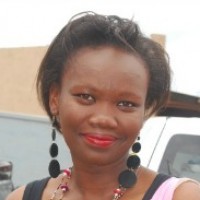Below is the introduction of Catherine Anite’s presentation written for the 2016 Justice for Free Expression Conference. Download below the full pdf version with footnotes.
Introduction
I have been asked to discuss the most important freedom of expression court decisions from Uganda in 2015, the overall judicial environment as far as the protection of freedom of expression in Uganda is concerned, a projection of decisions in 2016 from the major cases filed in courts and finally, an enunciation on the emerging themes. Before I explore these issues, I would like to unequivocally say that it is indeed a tall order to expect blossoming freedom of expression jurisprudence from a country like Uganda which has consistently and relentlessly undermined democracy, the rule of law and human rights through a crack-down on citizens who attempt to enjoy their constitutionally guaranteed rights and freedoms. State functionaries continue to shrink space for enjoyment of free speech and related rights through unlawful and illegal restrictions.
Over the past few years, Uganda’s ratings on freedom of expression and access to information have tremendously dwindled due to its visible and increasingly repressive State machinery that has often gagged the media. As accurately contextualized, democratic space in the country continues to shrink as the ruling party tags onto power despite an outcry for change from the citizenry.
For a country whose Constitution is premised on the principles of unity, peace, equality, democracy, freedom, social justice and progress2 with emphasis on the promotion of freedoms including expression and assembly,3 it is ironic that those entrusted with the protection and defense of these rights are at the forefront of violations and abuse. The police has constantly and repeatedly engaged itself in flagrant arrests, detentions, obstruction from accessing information, physical assaults of journalists and destruction of their equipment and sometimes in collaboration with other State agencies like the Uganda Communications Commission sieged and closed down media houses. It is no wonder that of the 143 violations against journalists documented in 2015, the Uganda Police is alleged to be responsible for 107 of the abuses.
The highly contested presidential election of February 18 20165 was the epitome of the states’ high-handedness in stifling speech, with the government ordering telecommunication providers to shut down all social-media platforms due to “security concerns.”6 Despite this blockade, a large number of elites managed to sidestep this through use of virtual private networks (VPNs) to access and share information about the election results, which saw the incumbent President extend his rule to 35 years amidst protests from the electorate. While the incumbent president and his party enjoy free speech, the opposition and journalists covering it have faced arrest, detention, and obstructions by the police.
Notwithstanding the fact that Uganda is a State Party to all the major international and regional human rights treaties including those that provide for freedom of expression, the regime, through its security forces, most especially the police have not hesitated to silence speech, especially on issues of accountability and democratic governance. It is thus not surprising that recently, a cabinet minister punched a female journalist who was recording him as he walked out of the Anti-corruption Court, in a case where he has been accused of swindling road funds worth millions of dollars.
I therefore argue that without respect for democracy, rule of law and human rights, and in the absence of an independent and speedy judiciary, it is difficult for free speech to thrive. This paper briefly discusses the judicial environment in protecting freedom of expression, the most important freedom of expression decisions in 2015, cases to watch out for in 2016 and emerging general themes.

